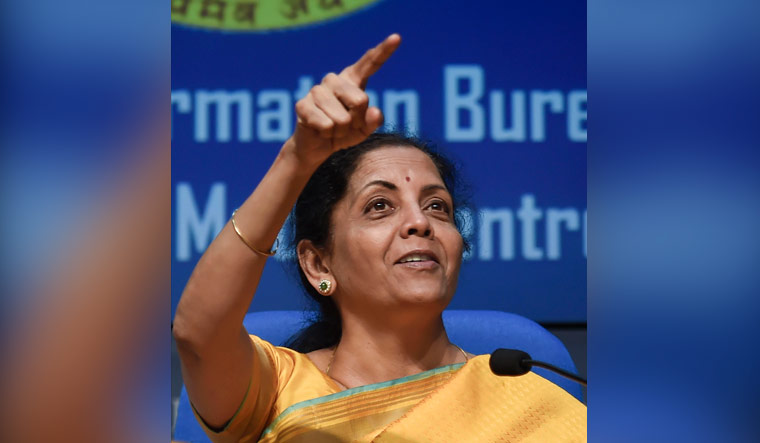At an interaction with the media on Sunday, a day after the 2020 Union Budget was presented, Finance Minister Nirmala Sitharaman said that it was too early to take a call on removing the Long Term Capital Gains (LTCG) tax, and that revenues from it would flow in with time.
She was responding to a question on whether it should be withdrawn, given reactions from both investors and the markets. The tax has not resulted in significant revenue for the government.
Most market players were anticipating a rollback of LTCG tax as well as an extension of the holding period to qualify for the tax.
The finance minister also issued clarifications on the proposed tax on NRI incomes earned in India.
She said that NRIs who generate some income in India will be taxed, while their global income would not be subjected to any tax. Earlier, it was understood by some that the government has brought in new provisions to tax NRI income.
Sitharaman said that the government was not taxing what one is earning in a foreign country, but that revenue generated here would be taxed.
“What are we saying in this, an NRI who probably lives in Dubai or some other country. And there he is not taxed at all but has some earnings through something in India. But because he doesn’t live here, doesn’t pay tax here also. For that income generated in India, he pays a tax,” she said.
“If he is earning something in a jurisdiction where there is no tax, why would I include that into mine? If you have a property here and get rent out of it. As you are living there, you carry this there. And pay no tax here or there. But, this property is giving income here. Have I got sovereign right to take into my consideration or not,” Sitharaman explained.
She added that her budget had made deep tax cuts for the middle class and lower-income groups. “The idea was to let them decide how they chose to spend their money. If they chose to spend, invest, save it or use in the stock market.”
She explained the rationale behind the new income tax regime, where tax cuts would be given if the payee forgoes all exemptions available under different instruments.
“Gradually, we move to a regime where the tax rate is lower and simpler to comply [with]. Remove all exemptions and complications, eventually, we arrive at a point where there are no exemptions. We are laying the foundation, we are not saying when we reach there,” she said.
Answering a question if removal of exemptions will make people move away from savings, or even buying insurances, Sitharaman said it was up to the taxpayer as to how they use their money. Moreover, she said that it would be wrong to assume that the consumer makes these decisions only based on exemptions in the tax structure.
The new tax regime is optional for a payee to chose from.



